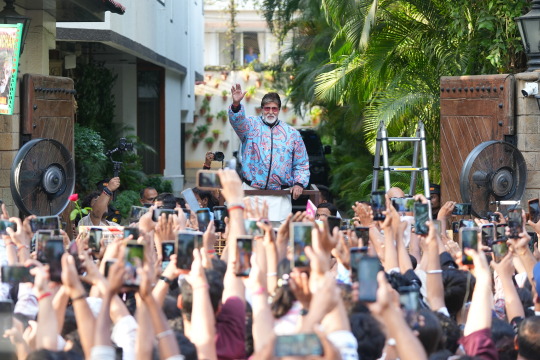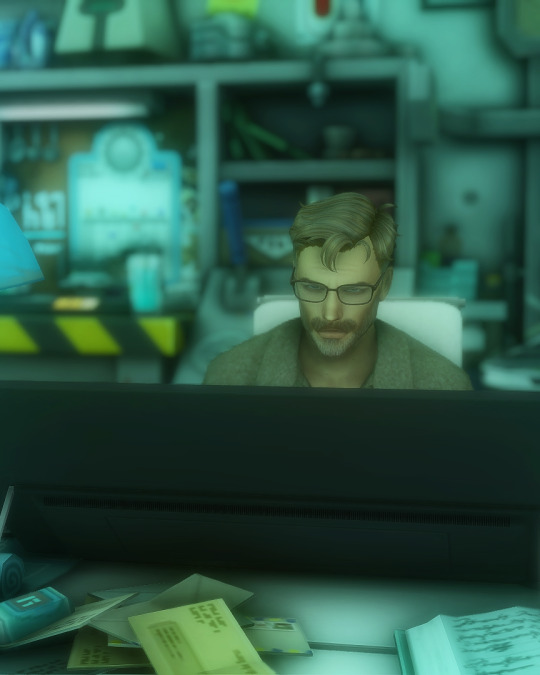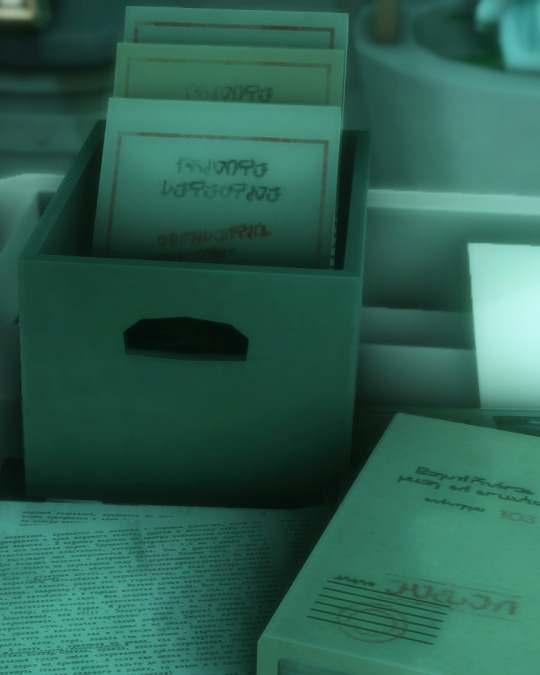#Remote Computer Repair
Explore tagged Tumblr posts
Text
The computer is an inevitable device in the life of most individuals in the productive field. This device has become an integral part of our daily lives. From people who work in different sectors to students, everyone relies on computers for various tasks. However, when a computer breaks down due to technical problems and malfunctions, these problems can disrupt your work or personal tasks. It is, therefore, important to look for remote computer repair and IT support in Sydney to come into the picture.
0 notes
Text
Autoenshittification

Forget F1: the only car race that matters now is the race to turn your car into a digital extraction machine, a high-speed inkjet printer on wheels, stealing your private data as it picks your pocket. Your car’s digital infrastructure is a costly, dangerous nightmare — but for automakers in pursuit of postcapitalist utopia, it’s a dream they can’t give up on.
Your car is stuffed full of microchips, a fact the world came to appreciate after the pandemic struck and auto production ground to a halt due to chip shortages. Of course, that wasn’t the whole story: when the pandemic started, the automakers panicked and canceled their chip orders, only to immediately regret that decision and place new orders.
But it was too late: semiconductor production had taken a serious body-blow, and when Big Car placed its new chip orders, it went to the back of a long, slow-moving line. It was a catastrophic bungle: microchips are so integral to car production that a car is basically a computer network on wheels that you stick your fragile human body into and pray.
The car manufacturers got so desperate for chips that they started buying up washing machines for the microchips in them, extracting the chips and discarding the washing machines like some absurdo-dystopian cyberpunk walnut-shelling machine:
https://www.autoevolution.com/news/desperate-times-companies-buy-washing-machines-just-to-rip-out-the-chips-187033.html
These digital systems are a huge problem for the car companies. They are the underlying cause of a precipitous decline in car quality. From touch-based digital door-locks to networked sensors and cameras, every digital system in your car is a source of endless repair nightmares, costly recalls and cybersecurity vulnerabilities:
https://www.reuters.com/business/autos-transportation/quality-new-vehicles-us-declining-more-tech-use-study-shows-2023-06-22/
What’s more, drivers hate all the digital bullshit, from the janky touchscreens to the shitty, wildly insecure apps. Digital systems are drivers’ most significant point of dissatisfaction with the automakers’ products:
https://www.theverge.com/23801545/car-infotainment-customer-satisifaction-survey-jd-power
Even the automakers sorta-kinda admit that this is a problem. Back in 2020 when Massachusetts was having a Right-to-Repair ballot initiative, Big Car ran these unfuckingbelievable scare ads that basically said, “Your car spies on you so comprehensively that giving anyone else access to its systems will let murderers stalk you to your home and kill you:
https://pluralistic.net/2020/09/03/rip-david-graeber/#rolling-surveillance-platforms
But even amid all the complaining about cars getting stuck in the Internet of Shit, there’s still not much discussion of why the car-makers are making their products less attractive, less reliable, less safe, and less resilient by stuffing them full of microchips. Are car execs just the latest generation of rubes who’ve been suckered by Silicon Valley bullshit and convinced that apps are a magic path to profitability?
Nope. Car execs are sophisticated businesspeople, and they’re surfing capitalism’s latest — and last — hot trend: dismantling capitalism itself.
Now, leftists have been predicting the death of capitalism since The Communist Manifesto, but even Marx and Engels warned us not to get too frisky: capitalism, they wrote, is endlessly creative, constantly reinventing itself, re-emerging from each crisis in a new form that is perfectly adapted to the post-crisis reality:
https://www.nytimes.com/2022/10/31/books/review/a-spectre-haunting-china-mieville.html
But capitalism has finally run out of gas. In his forthcoming book, Techno Feudalism: What Killed Capitalism, Yanis Varoufakis proposes that capitalism has died — but it wasn’t replaced by socialism. Rather, capitalism has given way to feudalism:
https://www.penguin.co.uk/books/451795/technofeudalism-by-varoufakis-yanis/9781847927279
Under capitalism, capital is the prime mover. The people who own and mobilize capital — the capitalists — organize the economy and take the lion’s share of its returns. But it wasn’t always this way: for hundreds of years, European civilization was dominated by rents, not markets.
A “rent” is income that you get from owning something that other people need to produce value. Think of renting out a house you own: not only do you get paid when someone pays you to live there, you also get the benefit of rising property values, which are the result of the work that all the other homeowners, business owners, and residents do to make the neighborhood more valuable.
The first capitalists hated rent. They wanted to replace the “passive income” that landowners got from taxing their serfs’ harvest with active income from enclosing those lands and grazing sheep in order to get wool to feed to the new textile mills. They wanted active income — and lots of it.
Capitalist philosophers railed against rent. The “free market” of Adam Smith wasn’t a market that was free from regulation — it was a market free from rents. The reason Smith railed against monopolists is because he (correctly) understood that once a monopoly emerged, it would become a chokepoint through which a rentier could cream off the profits he considered the capitalist’s due:
https://locusmag.com/2021/03/cory-doctorow-free-markets/
Today, we live in a rentier’s paradise. People don’t aspire to create value — they aspire to capture it. In Survival of the Richest, Doug Rushkoff calls this “going meta”: don’t provide a service, just figure out a way to interpose yourself between the provider and the customer:
https://pluralistic.net/2022/09/13/collapse-porn/#collapse-porn
Don’t drive a cab, create Uber and extract value from every driver and rider. Better still: don’t found Uber, invest in Uber options and extract value from the people who invest in Uber. Even better, invest in derivatives of Uber options and extract value from people extracting value from people investing in Uber, who extract value from drivers and riders. Go meta.
This is your brain on the four-hour-work-week, passive income mind-virus. In Techno Feudalism, Varoufakis deftly describes how the new “Cloud Capital” has created a new generation of rentiers, and how they have become the richest, most powerful people in human history.
Shopping at Amazon is like visiting a bustling city center full of stores — but each of those stores’ owners has to pay the majority of every sale to a feudal landlord, Emperor Jeff Bezos, who also decides which goods they can sell and where they must appear on the shelves. Amazon is full of capitalists, but it is not a capitalist enterprise. It’s a feudal one:
https://pluralistic.net/2022/11/28/enshittification/#relentless-payola
This is the reason that automakers are willing to enshittify their products so comprehensively: they were one of the first industries to decouple rents from profits. Recall that the reason that Big Car needed billions in bailouts in 2008 is that they’d reinvented themselves as loan-sharks who incidentally made cars, lending money to car-buyers and then “securitizing” the loans so they could be traded in the capital markets.
Even though this strategy brought the car companies to the brink of ruin, it paid off in the long run. The car makers got billions in public money, paid their execs massive bonuses, gave billions to shareholders in buybacks and dividends, smashed their unions, fucked their pensioned workers, and shipped jobs anywhere they could pollute and murder their workforce with impunity.
Car companies are on the forefront of postcapitalism, and they understand that digital is the key to rent-extraction. Remember when BMW announced that it was going to rent you the seatwarmer in your own fucking car?
https://pluralistic.net/2020/07/02/big-river/#beemers
Not to be outdone, Mercedes announced that they were going to rent you your car’s accelerator pedal, charging an extra $1200/year to unlock a fully functional acceleration curve:
https://www.theverge.com/2022/11/23/23474969/mercedes-car-subscription-faster-acceleration-feature-price
This is the urinary tract infection business model: without digitization, all your car’s value flowed in a healthy stream. But once the car-makers add semiconductors, each one of those features comes out in a painful, burning dribble, with every button on that fakakta touchscreen wired directly into your credit-card.
But it’s just for starters. Computers are malleable. The only computer we know how to make is the Turing Complete Von Neumann Machine, which can run every program we know how to write. Once they add networked computers to your car, the Car Lords can endlessly twiddle the knobs on the back end, finding new ways to extract value from you:
https://doctorow.medium.com/twiddler-1b5c9690cce6
That means that your car can track your every movement, and sell your location data to anyone and everyone, from marketers to bounty-hunters looking to collect fees for tracking down people who travel out of state for abortions to cops to foreign spies:
https://www.vice.com/en/article/n7enex/tool-shows-if-car-selling-data-privacy4cars-vehicle-privacy-report
Digitization supercharges financialization. It lets car-makers offer subprime auto-loans to desperate, poor people and then killswitch their cars if they miss a payment:
https://www.youtube.com/watch?v=4U2eDJnwz_s
Subprime lending for cars would be a terrible business without computers, but digitization makes it a great source of feudal rents. Car dealers can originate loans to people with teaser rates that quickly blow up into payments the dealer knows their customer can’t afford. Then they repo the car and sell it to another desperate person, and another, and another:
https://pluralistic.net/2022/07/27/boricua/#looking-for-the-joke-with-a-microscope
Digitization also opens up more exotic options. Some subprime cars have secondary control systems wired into their entertainment system: miss a payment and your car radio flips to full volume and bellows an unstoppable, unmutable stream of threats. Tesla does one better: your car will lock and immobilize itself, then blare its horn and back out of its parking spot when the repo man arrives:
https://tiremeetsroad.com/2021/03/18/tesla-allegedly-remotely-unlocks-model-3-owners-car-uses-smart-summon-to-help-repo-agent/
Digital feudalism hasn’t stopped innovating — it’s just stopped innovating good things. The digital device is an endless source of sadistic novelties, like the cellphones that disable your most-used app the first day you’re late on a payment, then work their way down the other apps you rely on for every day you’re late:
https://restofworld.org/2021/loans-that-hijack-your-phone-are-coming-to-india/
Usurers have always relied on this kind of imaginative intimidation. The loan-shark’s arm-breaker knows you’re never going to get off the hook; his goal is in intimidating you into paying his boss first, liquidating your house and your kid’s college fund and your wedding ring before you default and he throws you off a building.
Thanks to the malleability of computerized systems, digital arm-breakers have an endless array of options they can deploy to motivate you into paying them first, no matter what it costs you:
https://pluralistic.net/2021/04/02/innovation-unlocks-markets/#digital-arm-breakers
Car-makers are trailblazers in imaginative rent-extraction. Take VIN-locking: this is the practice of adding cheap microchips to engine components that communicate with the car’s overall network. After a new part is installed in your car, your car’s computer does a complex cryptographic handshake with the part that requires an unlock code provided by an authorized technician. If the code isn’t entered, the car refuses to use that part.
VIN-locking has exploded in popularity. It’s in your iPhone, preventing you from using refurb or third-party replacement parts:
https://doctorow.medium.com/apples-cement-overshoes-329856288d13
It’s in fuckin’ ventilators, which was a nightmare during lockdown as hospital techs nursed their precious ventilators along by swapping parts from dead systems into serviceable ones:
https://www.vice.com/en/article/3azv9b/why-repair-techs-are-hacking-ventilators-with-diy-dongles-from-poland
And of course, it’s in tractors, along with other forms of remote killswitch. Remember that feelgood story about John Deere bricking the looted Ukrainian tractors whose snitch-chips showed they’d been relocated to Russia?
https://doctorow.medium.com/about-those-kill-switched-ukrainian-tractors-bc93f471b9c8
That wasn’t a happy story — it was a cautionary tale. After all, John Deere now controls the majority of the world’s agricultural future, and they’ve boobytrapped those ubiquitous tractors with killswitches that can be activated by anyone who hacks, takes over, or suborns Deere or its dealerships.
Control over repair isn’t limited to gouging customers on parts and service. When a company gets to decide whether your device can be fixed, it can fuck you over in all kinds of ways. Back in 2019, Tim Apple told his shareholders to expect lower revenues because people were opting to fix their phones rather than replace them:
https://www.apple.com/newsroom/2019/01/letter-from-tim-cook-to-apple-investors/
By usurping your right to decide who fixes your phone, Apple gets to decide whether you can fix it, or whether you must replace it. Problem solved — and not just for Apple, but for car makers, tractor makers, ventilator makers and more. Apple leads on this, even ahead of Big Car, pioneering a “recycling” program that sees trade-in phones shredded so they can’t possibly be diverted from an e-waste dump and mined for parts:
https://www.vice.com/en/article/yp73jw/apple-recycling-iphones-macbooks
John Deere isn’t sleeping on this. They’ve come up with a valuable treasure they extract when they win the Right-to-Repair: Deere singles out farmers who complain about its policies and refuses to repair their tractors, stranding them with six-figure, two-ton paperweight:
https://pluralistic.net/2022/05/31/dealers-choice/#be-a-shame-if-something-were-to-happen-to-it
The repair wars are just a skirmish in a vast, invisible fight that’s been waged for decades: the War On General-Purpose Computing, where tech companies use the law to make it illegal for you to reconfigure your devices so they serve you, rather than their shareholders:
https://memex.craphound.com/2012/01/10/lockdown-the-coming-war-on-general-purpose-computing/
The force behind this army is vast and grows larger every day. General purpose computers are antithetical to technofeudalism — all the rents extracted by technofeudalists would go away if others (tinkereres, co-ops, even capitalists!) were allowed to reconfigure our devices so they serve us.
You’ve probably noticed the skirmishes with inkjet printer makers, who can only force you to buy their ink at 20,000% markups if they can stop you from deciding how your printer is configured:
https://pluralistic.net/2022/08/07/inky-wretches/#epson-salty But we’re also fighting against insulin pump makers, who want to turn people with diabetes into walking inkjet printers:
https://pluralistic.net/2022/06/10/loopers/#hp-ification
And companies that make powered wheelchairs:
https://pluralistic.net/2022/06/08/chair-ish/#r2r
These companies start with people who have the least agency and social power and wreck their lives, then work their way up the privilege gradient, coming for everyone else. It’s called the “shitty technology adoption curve”:
https://pluralistic.net/2022/08/21/great-taylors-ghost/#solidarity-or-bust
Technofeudalism is the public-private-partnership from hell, emerging from a combination of state and private action. On the one hand, bailing out bankers and big business (rather than workers) after the 2008 crash and the covid lockdown decoupled income from profits. Companies spent billions more than they earned were still wildly profitable, thanks to those public funds.
But there’s also a policy dimension here. Some of those rentiers’ billions were mobilized to both deconstruct antitrust law (allowing bigger and bigger companies and cartels) and to expand “IP” law, turning “IP” into a toolsuite for controlling the conduct of a firm’s competitors, critics and customers:
https://locusmag.com/2020/09/cory-doctorow-ip/
IP is key to understanding the rise of technofeudalism. The same malleability that allows companies to “twiddle” the knobs on their services and keep us on the hook as they reel us in would hypothetically allow us to countertwiddle, seizing the means of computation:
https://pluralistic.net/2023/04/12/algorithmic-wage-discrimination/#fishers-of-men
The thing that stands between you and an alternative app store, an interoperable social media network that you can escape to while continuing to message the friends you left behind, or a car that anyone can fix or unlock features for is IP, not technology. Under capitalism, that technology would already exist, because capitalists have no loyalty to one another and view each other’s margins as their own opportunities.
But under technofeudalism, control comes from rents (owning things), not profits (selling things). The capitalist who wants to participate in your iPhone’s “ecosystem” has to make apps and submit them to Apple, along with 30% of their lifetime revenues — they don’t get to sell you jailbreaking kit that lets you choose their app store.
Rent-seeking technology has a holy grail: control over “ring zero” — the ability to compel you to configure your computer to a feudalist’s specifications, and to verify that you haven’t altered your computer after it came into your possession:
https://pluralistic.net/2022/01/30/ring-minus-one/#drm-political-economy
For more than two decades, various would-be feudal lords and their court sorcerers have been pitching ways of doing this, of varying degrees of outlandishness.
At core, here’s what they envision: inside your computer, they will nest another computer, one that is designed to run a very simple set of programs, none of which can be altered once it leaves the factory. This computer — either a whole separate chip called a “Trusted Platform Module” or a region of your main processor called a secure enclave — can tally observations about your computer: which operating system, modules and programs it’s running.
Then it can cryptographically “sign” these observations, proving that they were made by a secure chip and not by something you could have modified. Then you can send this signed “attestation” to someone else, who can use it to determine how your computer is configured and thus whether to trust it. This is called “remote attestation.”
There are some cool things you can do with remote attestation: for example, two strangers playing a networked video game together can use attestations to make sure neither is running any cheat modules. Or you could require your cloud computing provider to use attestations that they aren’t stealing your data from the server you’re renting. Or if you suspect that your computer has been infected with malware, you can connect to someone else and send them an attestation that they can use to figure out whether you should trust it.
Today, there’s a cool remote attestation technology called “PrivacyPass” that replaces CAPTCHAs by having you prove to your own device that you are a human. When a server wants to make sure you’re a person, it sends a random number to your device, which signs that number along with its promise that it is acting on behalf of a human being, and sends it back. CAPTCHAs are all kinds of bad — bad for accessibility and privacy — and this is really great.
But the billions that have been thrown at remote attestation over the decades is only incidentally about solving CAPTCHAs or verifying your cloud server. The holy grail here is being able to make sure that you’re not running an ad-blocker. It’s being able to remotely verify that you haven’t disabled the bossware your employer requires. It’s the power to block someone from opening an Office365 doc with LibreOffice. It’s your boss’s ability to ensure that you haven’t modified your messaging client to disable disappearing messages before he sends you an auto-destructing memo ordering you to break the law.
And there’s a new remote attestation technology making the rounds: Google’s Web Environment Integrity, which will leverage Google’s dominance over browsers to allow websites to block users who run ad-blockers:
https://github.com/RupertBenWiser/Web-Environment-Integrity
There’s plenty else WEI can do (it would make detecting ad-fraud much easier), but for every legitimate use, there are a hundred ways this could be abused. It’s a technology purpose-built to allow rent extraction by stripping us of our right to technological self-determination.
Releasing a technology like this into a world where companies are willing to make their products less reliable, less attractive, less safe and less resilient in pursuit of rents is incredibly reckless and shortsighted. You want unauthorized bread? This is how you get Unauthorized Bread:
https://arstechnica.com/gaming/2020/01/unauthorized-bread-a-near-future-tale-of-refugees-and-sinister-iot-appliances/amp/

If you'd like an essay-formatted version of this thread to read or share, here's a link to it on pluralistic.net, my surveillance-free, ad-free, tracker-free blog:
https://pluralistic.net/2023/07/24/rent-to-pwn/#kitt-is-a-demon

[Image ID: The interior of a luxury car. There is a dagger protruding from the steering wheel. The entertainment console has been replaced by the text 'You wouldn't download a car,' in MPAA scare-ad font. Outside of the windscreen looms the Matrix waterfall effect. Visible in the rear- and side-view mirror is the driver: the figure from Munch's 'Scream.' The screen behind the steering-wheel has been replaced by the menacing red eye of HAL9000 from Stanley Kubrick's '2001: A Space Odyssey.']

Image: Cryteria (modified) https://commons.wikimedia.org/wiki/File:HAL9000.svg
CC BY 3.0 https://creativecommons.org/licenses/by/3.0/deed.en
#pluralistic#shitty technology adoption curve#unauthorized bread#automotive#arm-breakers#cars#big car#right to repair#rent-seeking#digital feudalism#neofeudalism#drm#wei#remote attestation#private access tokens#yannis varoufakis#web environment integrity#paternalism#war on general purpose computing#competitive compatibility#google#enshittification#interoperability#adversarial interoperability#comcom#the internet con#postcapitalism#ring zero#care#med-tech
4K notes
·
View notes
Text
Expert Computer Technician Los Angeles Residents Trust Looking for a skilled computer technician in Los Angeles? Whether it’s virus removal, data recovery, or hardware upgrades, our certified technicians offer prompt, dependable service to keep your devices running smoothly.
#computer experts los angeles#onsite computer repair#computer technician los angeles#remote repair robin#microsoft computer repair
0 notes
Text
#callie.txt.exe#robotgirl#polls#(pointing a gun at you) do you want the utility or do you want the fun
7K notes
·
View notes
Text
The Power of Remote Work : Embracing the Future of Employment
The concept of work has undergone a transformative evolution, and at the forefront of this revolution stands remote work. Working away from the office might provide you a sense of control over your life and more time to organize work and home responsibilities. Employees are more productive as a result of this sense of accomplishment. In this blog, we delve into the myriad benefits and opportunities that come with embracing a remote work model.

1. Enhanced Work-Life Balance : Remote work liberates individuals from the confines of a traditional office. It allows for a more harmonious integration of professional responsibilities with personal pursuits, resulting in a healthier work-life balance. You can also take jobs regarding the USA Remote IT Support Services.
2. Increased Productivity : Studies have shown that remote workers often report higher levels of productivity. Freed from the distractions and interruptions of a bustling office, employees can focus deeply on their tasks, leading to greater efficiency and output.
3. Global Talent Pool : Employers no longer need to restrict their search for talent to a specific geographic location. Remote work opens the door to a global talent pool, enabling companies to recruit the best individuals for the job, regardless of their physical location.
4. Cost Savings : For both employees and employers, remote work translates into significant cost savings. Employees save on commuting expenses, work attire, and often enjoy greater flexibility in managing household expenses. Employers benefit from reduced overheads related to office space, utilities, and facilities.
5. Diverse Perspectives and Inclusivity : Remote work fosters inclusivity by breaking down geographical barriers. It allows companies to tap into a diverse range of perspectives, experiences, and talents, creating a richer and more innovative work environment. You can also opt for Computer Repairing Services in Knoxville.
6. Environmental Impact : Reduced commuting means fewer cars on the road, resulting in lower carbon emissions and a positive impact on the environment. Embracing remote work aligns with sustainability goals and contributes to a greener future.
7. Autonomy and Empowerment : Remote work empowers employees to take charge of their work environment, providing a sense of autonomy. This sense of ownership often leads to higher job satisfaction and increased engagement.
8. Resilience in Challenging Times : The COVID-19 pandemic showcased the resilience of remote work. Businesses that had already adopted a flexible work model were better equipped to navigate the uncertainties, demonstrating the value of this approach in times of crisis.
Conclusion
Remote work is more than a trend; it's a paradigm shift in the world of employment. It offers benefits that extend beyond convenience, touching on productivity, inclusivity, and sustainability. By embracing this new way of working, businesses and individuals can unlock a future of greater flexibility, efficiency, and opportunity. You can also take jobs regarding the USA Remote IT Support Services.
#USA Remote IT Support Services#Knoxville Residential Computer Services#Commercial It Services in knoxville#IT Services and Support Provider in Knoxville#Computer Repairing Services in Knoxville
0 notes
Text
DAY 6274
Jalsa, Mumbai Aopr 20, 2025 Sun 11:17 pm
🪔 ,
April 21 .. birthday greetings and happiness to Ef Mousumi Biswas .. and Ef Arijit Bhattacharya from Kolkata .. 🙏🏽❤️🚩.. the wishes from the Ef family continue with warmth .. and love 🌺
The AI debate became the topic of discussion on the dining table ad there were many potent points raised - bith positive and a little indifferent ..
The young acknowledged it with reason and able argument .. some of the mid elders disagreed mildly .. and the end was kind of neutral ..
Blessed be they of the next GEN .. their minds are sorted out well in advance .. and why not .. we shall not be around till time in advance , but they and their progeny shall .. as has been the norm through generations ...
The IPL is now the greatest attraction throughout the day .. particularly on the Sunday, for the two on the day .. and there is never a debate on that ..
🤣
.. and I am most appreciative to read the comments from the Ef on the topic of the day - AI .. appreciative because some of the reactions and texts are valid and interesting to know .. the aspect expressed in all has a legitimate argument and that is most healthy ..
I am happy that we could all react to the Blog contents in the manner they have done .. my gratitude .. such a joy to get different views , valid and meaningful ..
And it is not the end of the day or the debate .. some impressions of the Gen X and some from the just passed Gen .. and some that were never ever the Gen are interesting as well :
The Printing Press (15th Century)
Fear: Scribes, monks, and elites thought it would destroy the value of knowledge, lead to mass misinformation, and eliminate jobs. Reality: It democratized knowledge, spurred the Renaissance and Reformation, and created entirely new industries—publishing, journalism, and education.
⸻
Industrial Revolution (18th–19th Century)
Fear: Machines would replace all human labor. The Luddites famously destroyed machinery in protest. Reality: Some manual labor jobs were displaced, but the economy exploded with new roles in manufacturing, logistics, engineering, and management. Overall employment and productivity soared.
⸻
Automobiles (Early 20th Century)
Fear: People feared job losses for carriage makers, stable hands, and horseshoe smiths. Cities worried about traffic, accidents, and social decay. Reality: The car industry became one of the largest employers in the world. It reshaped economies, enabled suburbia, and created new sectors like travel, road infrastructure, and auto repair.
⸻
Personal Computers (1980s)
Fear: Office workers would be replaced by machines; people worried about becoming obsolete. Reality: Computers made work faster and created entire industries: IT, software development, cybersecurity, and tech support. It transformed how we live and work.
⸻
The Internet (1990s)
Fear: It would destroy jobs in retail, publishing, and communication. Some thought it would unravel social order. Reality: E-commerce, digital marketing, remote work, and the creator economy now thrive. It connected the world and opened new opportunities.
⸻
ATMs (1970s–80s)
Fear: Bank tellers would lose their jobs en masse. Reality: ATMs handled routine tasks, but banks actually hired more tellers for customer service roles as they opened more branches thanks to reduced transaction costs.
⸻
Robotics & Automation (Factory work, 20th century–today)
Fear: Mass unemployment in factories. Reality: While some jobs shifted or ended, others evolved—robot maintenance, programming, design. Productivity gains created new jobs elsewhere.
The fear is not for losing jobs. It is the compromise of intellectual property and use without compensation. This case is slightly different.
I think AI will only make humans smarter. If we use it to our advantage.
That’s been happening for the last 10 years anyway
Not something new
You can’t control that in this day and age
YouTube & User-Generated Content (mid-2000s onward)
Initial Fear: When YouTube exploded, many in the entertainment industry panicked. The fear was that copyrighted material—music, TV clips, movies—would be shared freely without compensation. Creators and rights holders worried their content would be pirated, devalued, and that they’d lose control over distribution.
What Actually Happened: YouTube evolved to protect IP and monetize it through systems like Content ID, which allows rights holders to:
Automatically detect when their content is used
Choose to block, track, or monetize that usage
Earn revenue from ads run on videos using their IP (even when others post it)
Instead of wiping out creators or studios, it became a massive revenue stream—especially for musicians, media companies, and creators. Entire business models emerged around fair use, remixes, and reactions—with compensation built in.
Key Shift: The system went from “piracy risk” to “profit partner,” by embracing tech that recognized and enforced IP rights at scale.
This lead to higher profits and more money for owners and content btw
You just have to restructure the compensation laws and rewrite contracts
It’s only going to benefit artists in the long run
Yes
They can IP it
That is the hope
It’s the spread of your content and material without you putting a penny towards it
Cannot blindly sign off everything in contracts anymore. Has to be a lot more specific.
Yes that’s for sure
“Automation hasn’t erased jobs—it’s changed where human effort goes.”
Another good one is “hard work beats talent when talent stops working hard”
Which has absolutely nothing to with AI right now but 🤣
These ladies and Gentlemen of the Ef jury are various conversational opinions on AI .. I am merely pasting them for a view and an opinion ..
And among all the brouhaha about AI .. we simply forgot the Sunday well wishers .. and so ..














my love and the length be of immense .. pardon

Amitabh Bachchan
107 notes
·
View notes
Note
Since Sage is an a.i. can't she help with some things at the base remotely? I think that would be better than actually having her come home when it's dangerous. 😥
I can access the computers, deploy bots and weapons, and communicate remotely, but my personal powers are limited to my own location. I am able to help protect the lair from attacks that way. I have also been doing maintenance the whole time I have been away, ensuring the quality of the repairs and keeping things running. It is the least I can do.
#ask blog#sonic ask blog#ask#sonic#sth#sonic the hedgehog#ask sonic#anon ask#sage answers#sage the ai#sage sonic frontiers#eggdad#eggman#vanilla's house#Eggman's lair
20 notes
·
View notes
Text
Intro - whoami
Salutations? I am necrotech-puppywitch aka morrogos aka Morrigan. Currently living the cyberpunk life (surviving off of "contracting" remotely while studying two degrees and running all my stuff off of salvaged and resurrected tech while still barely paying for rent and fighting my cornucopia of demons).
Note: I CANT DONATE IM BARELY GETTING BY MYSELF
TERFS FUCK OFF TO HELL
Blm, 🇵🇸, Trans rights are human rights, fuck capitalism, fuck fascism, fuck right wing bullshit, abolish ALL borders, healthcare is a human right not a business model
I use Arch btw (custom hardened kernel) with Hyprland because GET GOOD
>blog - this blog is my personal blog, sometimes i do horny posting/ reblogging, usually just random pictures and thoughts from day to day life, occassionally an essay or a poem or a snippet of something I am working on (could be art, could be journalling, could be code, who knows)
> pronouns - she/ they/ it
>id - trans fem demisexual poly sapphic leaning (check back on that last one in six months) nonbinary creature of the night waiting to rip out your throat :3
>autistic? Very
>music - Dazey and the Scouts, Avril Lavigne, Night Tapes, carolesdaughter, GRLwood, Destroy Boys, chloe moriondo, Halsey, Jazmin Bean, KiNG MALA, Leanna Firestone, Paramore, PERTUBATOR, Pretty Sick, Poppy, Mommy Long Legs, Bikini Kill, Royal & the Serpent, Sir Chloe, Skating Polly, TAELA, awfultune, Rare Americans, dacelynn, Mountain Goats, Penelope Scott, wallows, cavetown, ethel cain, Bloodwitch, Atlas Ivy
>intr - fungi, digital art, computers, diy tech, resurrecting dead computers from the dump (every device I own is either one ive repaired from there or something 3rd or 4th hand), capture the flags, args, piracy, philosophy, poetry, cozy horror writing, books, bug bounties, maldev, old books (I love old book smell), FOSS, making synth music, old b grade horror movies, cozy horror, furry stuff
>fvfds - sushi, karage chicken, chicken nuggies, baguettes, cheese melts, mie goreng noodles, brisket
>fvmedia - Scoobey Doo Mystery Incorporated (animated show), Harley Quinn (the 2019 show), She-Ra and the Princesses of Power (2018), LOONEY TUNES MY BELOVED!, Creature from the Black Lagoon, Gravity Falls, Rick and Morty (I know I know it sucks whatever), Watchmen, literally anything Studio Ghibli, Serial Experiments Lain (she just like me fr), wargames (both movies, the dead code is a comedy and underrated), Lisa Frankenstein, Strange Darling (LITERALLY GOALS), Hilda, Atomic Blonde, TRON Legacy, House on Haunted Hill (the original), Re-Animator (he did nothing wrong fr fr), the Fear Street Trilogy (the lighting is delicious!), Pantheon, ARE YOU AFRAID OF THE DARK? (I grew up on the 90s series, love it), Black Lagoon, Guillermo Del Torro's Cabinet of Curiosities, Dracula (1931, Bella Legosi is amazing), all the scream movies (yes they are terrible, I love them for it), Atlantis (the disney one, I just like the aesthetics of and the submarine is so so cool it just tickles my brain right), gingersnaps, the creepshow trilogy, the owl house, Sky Captain and the World of Tomorrow, psycho, series of unfortunate events, I am not okay with this, goonies, the iron giant, Ulysses 31, Last Night in Soho
>vgmes - Faith: The Unholy Trinity, Minecraft, CS2 (I miss csgo, cs2 is worse, I also miss the old overwatch), Stardew Valley, Cyberpunk 2077, Orwell, Oneshot, Party Hard, Fallout New Vegas, Fallout 4, Payday 2, Life Is Strange, The Sims 4, Crusader Kings 2, CELESTE MY BELOVED (that made me cry TwT), Mother Russia Bleeds,
>fvprintmedia - courtney crumrin, goosebumps horrorland, the amulet series, the domino comics, the graveyard book, tales of the cthulhu mythos, the sandman comics (the 40s and 50s one, I have a mega edition with all the comics of the old sandman), the phantom of the opera, wuthering heights, the mysterious island, the Fall of the House of Usher, the picture of dorian grey, bodies from the library, psycho, series of unfortunate events,
> ask me about? Anything, i am so so bored please interact with me
> colours - greens, purples, lots of black, pastel pinks, but mainly blacks
>will I break your knee caps? Yes, yes I will. I am a violence enjoyer and a massive masochist
>I reallly hate going to the vet TwT
23 notes
·
View notes
Text
Cleantech has an enshittification problem

On July 14, I'm giving the closing keynote for the fifteenth HACKERS ON PLANET EARTH, in QUEENS, NY. Happy Bastille Day! On July 20, I'm appearing in CHICAGO at Exile in Bookville.

EVs won't save the planet. Ultimately, the material bill for billions of individual vehicles and the unavoidable geometry of more cars-more traffic-more roads-greater distances-more cars dictate that the future of our cities and planet requires public transit – lots of it.
But no matter how much public transit we install, there's always going to be some personal vehicles on the road, and not just bikes, ebikes and scooters. Between deliveries, accessibility, and stubbornly low-density regions, there's going to be a lot of cars, vans and trucks on the road for the foreseeable future, and these should be electric.
Beyond that irreducible minimum of personal vehicles, there's the fact that individuals can't install their own public transit system; in places that lack the political will or means to create working transit, EVs are a way for people to significantly reduce their personal emissions.
In policy circles, EV adoption is treated as a logistical and financial issue, so governments have focused on making EVs affordable and increasing the density of charging stations. As an EV owner, I can affirm that affordability and logistics were important concerns when we were shopping for a car.
But there's a third EV problem that is almost entirely off policy radar: enshittification.
An EV is a rolling computer in a fancy case with a squishy person inside of it. While this can sound scary, there are lots of cool implications for this. For example, your EV could download your local power company's tariff schedule and preferentially charge itself when the rates are lowest; they could also coordinate with the utility to reduce charging when loads are peaking. You can start them with your phone. Your repair technician can run extensive remote diagnostics on them and help you solve many problems from the road. New features can be delivered over the air.
That's just for starters, but there's so much more in the future. After all, the signal virtue of a digital computer is its flexibility. The only computer we know how to make is the Turing complete, universal, Von Neumann machine, which can run every valid program. If a feature is computationally tractable – from automated parallel parking to advanced collision prevention – it can run on a car.
The problem is that this digital flexibility presents a moral hazard to EV manufacturers. EVs are designed to make any kind of unauthorized, owner-selected modification into an IP rights violation ("IP" in this case is "any law that lets me control the conduct of my customers or competitors"):
https://locusmag.com/2020/09/cory-doctorow-ip/
EVs are also designed so that the manufacturer can unilaterally exert control over them or alter their operation. EVs – even more than conventional vehicles – are designed to be remotely killswitched in order to help manufacturers and dealers pressure people into paying their car notes on time:
https://pluralistic.net/2023/07/24/rent-to-pwn/#kitt-is-a-demon
Manufacturers can reach into your car and change how much of your battery you can access:
https://pluralistic.net/2023/07/28/edison-not-tesla/#demon-haunted-world
They can lock your car and have it send its location to a repo man, then greet him by blinking its lights, honking its horn, and pulling out of its parking space:
https://tiremeetsroad.com/2021/03/18/tesla-allegedly-remotely-unlocks-model-3-owners-car-uses-smart-summon-to-help-repo-agent/
And of course, they can detect when you've asked independent mechanic to service your car and then punish you by degrading its functionality:
https://www.repairerdrivennews.com/2024/06/26/two-of-eight-claims-in-tesla-anti-trust-lawsuit-will-move-forward/
This is "twiddling" – unilaterally and irreversibly altering the functionality of a product or service, secure in the knowledge that IP law will prevent anyone from twiddling back by restoring the gadget to a preferred configuration:
https://pluralistic.net/2023/02/19/twiddler/
The thing is, for an EV, twiddling is the best case scenario. As bad as it is for the company that made your EV to change how it works whenever they feel like picking your pocket, that's infinitely preferable to the manufacturer going bankrupt and bricking your car.
That's what just happened to owners of Fisker EVs, cars that cost $40-70k. Cars are long-term purchases. An EV should last 12-20 years, or even longer if you pay to swap the battery pack. Fisker was founded in 2016 and shipped its first Ocean SUV in 2023. The company is now bankrupt:
https://insideevs.com/news/723669/fisker-inc-bankruptcy-chapter-11-official/
Fisker called its vehicles "software-based cars" and they weren't kidding. Without continuous software updates and server access, those Fisker Ocean SUVs are turning into bricks. What's more, the company designed the car from the ground up to make any kind of independent service and support into a felony, by wrapping the whole thing in overlapping layers of IP. That means that no one can step in with a module that jailbreaks the Fisker and drops in an alternative firmware that will keep the fleet rolling.
This is the third EV risk – not just finance, not just charger infrastructure, but the possibility that any whizzy, cool new EV company will go bust and brick your $70k cleantech investment, irreversibly transforming your car into 5,500 lb worth of e-waste.
This confers a huge advantage onto the big automakers like VW, Kia, Ford, etc. Tesla gets a pass, too, because it achieved critical mass before people started to wise up to the risk of twiddling and bricking. If you're making a serious investment in a product you expect to use for 20 years, are you really gonna buy it from a two-year old startup with six months' capital in the bank?
The incumbency advantage here means that the big automakers won't have any reason to sink a lot of money into R&D, because they won't have to worry about hungry startups with cool new ideas eating their lunches. They can maintain the cozy cartel that has seen cars stagnate for decades, with the majority of "innovation" taking the form of shitty, extractive and ill-starred ideas like touchscreen controls and an accelerator pedal that you have to rent by the month:
https://www.theverge.com/2022/11/23/23474969/mercedes-car-subscription-faster-acceleration-feature-price
Put that way, it's clear that this isn't an EV problem, it's a cleantech problem. Cleantech has all the problems of EVs: it requires a large capital expenditure, it will be "smart," and it is expected to last for decades. That's rooftop solar, heat-pumps, smart thermostat sensor arrays, and home storage batteries.
And just as with EVs, policymakers have focused on infrastructure and affordability without paying any attention to the enshittification risks. Your rooftop solar will likely be controlled via a Solaredge box – a terrible technology that stops working if it can't reach the internet for a protracted period (that's right, your home solar stops working if the grid fails!).
I found this out the hard way during the covid lockdowns, when Solaredge terminated its 3G cellular contract and notified me that I would have to replace the modem in my system or it would stop working. This was at the height of the supply-chain crisis and there was a long waiting list for any replacement modems, with wifi cards (that used your home internet rather than a cellular connection) completely sold out for most of a year.
There are good reasons to connect rooftop solar arrays to the internet – it's not just so that Solaredge can enshittify my service. Solar arrays that coordinate with the grid can make it much easier and safer to manage a grid that was designed for centralized power production and is being retrofitted for distributed generation, one roof at a time.
But when the imperatives of extraction and efficiency go to war, extraction always wins. After all, the Solaredge system is already in place and solar installers are largely ignorant of, and indifferent to, the reasons that a homeowner might want to directly control and monitor their system via local controls that don't roundtrip through the cloud.
Somewhere in the hindbrain of any prospective solar purchaser is the experience with bricked and enshittified "smart" gadgets, and the knowledge that anything they buy from a cool startup with lots of great ideas for improving production, monitoring, and/or costs poses the risk of having your 20 year investment bricked after just a few years – and, thanks to the extractive imperative, no one will be able to step in and restore your ex-solar array to good working order.
I make the majority of my living from books, which means that my pay is very "lumpy" – I get large sums when I publish a book and very little in between. For many years, I've used these payments to make big purchases, rather than financing them over long periods where I can't predict my income. We've used my book payments to put in solar, then an induction stove, then a battery. We used one to buy out the lease on our EV. And just a month ago, we used the money from my upcoming Enshittification book to put in a heat pump (with enough left over to pay for a pair of long-overdue cataract surgeries, scheduled for the fall).
When we started shopping for heat pumps, it was clear that this was a very exciting sector. First of all, heat pumps are kind of magic, so efficient and effective it's almost surreal. But beyond the basic tech – which has been around since the late 1940s – there is a vast ferment of cool digital features coming from exciting and innovative startups.
By nature, I'm the kid of person who likes these digital features. I started out as a computer programmer, and while I haven't written production code since the previous millennium, I've been in and around the tech industry for my whole adult life. But when it came time to buy a heat-pump – an investment that I expected to last for 20 years or more – there was no way I was going to buy one of these cool new digitally enhanced pumps, no matter how much the reviewers loved them. Sure, they'd work well, but it's precisely because I'm so knowledgeable about high tech that I could see that they would fail very, very badly.
You may think EVs are bullshit, and they are – though there will always be room for some personal vehicles, and it's better for people in transit deserts to drive EVs than gas-guzzlers. You may think rooftop solar is a dead-end and be all-in on utility scale solar (I think we need both, especially given the grid-disrupting extreme climate events on our horizon). But there's still a wide range of cleantech – induction tops, heat pumps, smart thermostats – that are capital intensive, have a long duty cycle, and have good reasons to be digitized and networked.
Take home storage batteries: your utility can push its rate card to your battery every time they change their prices, and your battery can use that information to decide when to let your house tap into the grid, and when to switch over to powering your home with the solar you've stored up during the day. This is a very old and proven pattern in tech: the old Fidonet BBS network used a version of this, with each BBS timing its calls to other nodes to coincide with the cheapest long-distance rates, so that messages for distant systems could be passed on:
https://en.wikipedia.org/wiki/FidoNet
Cleantech is a very dynamic sector, even if its triumphs are largely unheralded. There's a quiet revolution underway in generation, storage and transmission of renewable power, and a complimentary revolution in power-consumption in vehicles and homes:
https://pluralistic.net/2024/06/12/s-curve/#anything-that-cant-go-on-forever-eventually-stops
But cleantech is too important to leave to the incumbents, who are addicted to enshittification and planned obsolescence. These giant, financialized firms lack the discipline and culture to make products that have the features – and cost savings – to make them appealing to the very wide range of buyers who must transition as soon as possible, for the sake of the very planet.
It's not enough for our policymakers to focus on financing and infrastructure barriers to cleantech adoption. We also need a policy-level response to enshittification.
Ideally, every cleantech device would be designed so that it was impossible to enshittify – which would also make it impossible to brick:
Based on free software (best), or with source code escrowed with a trustee who must release the code if the company enters administration (distant second-best);
All patents in a royalty-free patent-pool (best); or in a trust that will release them into a royalty-free pool if the company enters administration (distant second-best);
No parts-pairing or other DRM permitted (best); or with parts-pairing utilities available to all parties on a reasonable and non-discriminatory basis (distant second-best);
All diagnostic and error codes in the public domain, with all codes in the clear within the device (best); or with decoding utilities available on demand to all comers on a reasonable and non-discriminatory basis (distant second-best).
There's an obvious business objection to this: it will reduce investment in innovative cleantech because investors will perceive these restrictions as limits on the expected profits of their portfolio companies. It's true: these measures are designed to prevent rent-extraction and other enshittificatory practices by cleantech companies, and to the extent that investors are counting on enshittification rents, this might prevent them from investing.
But that has to be balanced against the way that a general prohibition on enshittificatory practices will inspire consumer confidence in innovative and novel cleantech products, because buyers will know that their investments will be protected over the whole expected lifespan of the product, even if the startup goes bust (nearly every startup goes bust). These measures mean that a company with a cool product will have a much larger customer-base to sell to. Those additional sales more than offset the loss of expected revenue from cheating and screwing your customers by twiddling them to death.
There's also an obvious legal objection to this: creating these policies will require a huge amount of action from Congress and the executive branch, a whole whack of new rules and laws to make them happen, and each will attract court-challenges.
That's also true, though it shouldn't stop us from trying to get legal reforms. As a matter of public policy, it's terrible and fucked up that companies can enshittify the things we buy and leave us with no remedy.
However, we don't have to wait for legal reform to make this work. We can take a shortcut with procurement – the things governments buy with public money. The feds, the states and localities buy a lot of cleantech: for public facilities, for public housing, for public use. Prudent public policy dictates that governments should refuse to buy any tech unless it is designed to be enshittification-resistant.
This is an old and honorable tradition in policymaking. Lincoln insisted that the rifles he bought for the Union Army come with interoperable tooling and ammo, for obvious reasons. No one wants to be the Commander in Chief who shows up on the battlefield and says, "Sorry, boys, war's postponed, our sole supplier decided to stop making ammunition."
By creating a market for enshittification-proof cleantech, governments can ensure that the public always has the option of buying an EV that can't be bricked even if the maker goes bust, a heat-pump whose digital features can be replaced or maintained by a third party of your choosing, a solar controller that coordinates with the grid in ways that serve their owners – not the manufacturers' shareholders.
We're going to have to change a lot to survive the coming years. Sure, there's a lot of scary ways that things can go wrong, but there's plenty about our world that should change, and plenty of ways those changes could be for the better. It's not enough for policymakers to focus on ensuring that we can afford to buy whatever badly thought-through, extractive tech the biggest companies want to foist on us – we also need a focus on making cleantech fit for purpose, truly smart, reliable and resilient.

Support me this summer on the Clarion Write-A-Thon and help raise money for the Clarion Science Fiction and Fantasy Writers' Workshop!

If you'd like an essay-formatted version of this post to read or share, here's a link to it on pluralistic.net, my surveillance-free, ad-free, tracker-free blog:
https://pluralistic.net/2024/06/26/unplanned-obsolescence/#better-micetraps

Image: 臺灣古寫真上色 (modified) https://commons.wikimedia.org/wiki/File:Raid_on_Kagi_City_1945.jpg
Grendelkhan (modified) https://commons.wikimedia.org/wiki/File:Ground_mounted_solar_panels.gk.jpg
CC BY-SA 4.0 https://creativecommons.org/licenses/by-sa/4.0/deed.en
#pluralistic#procurement#cleantech#evs#solar#solarpunk#policy#copyfight#copyright#felony contempt of business model#floss#free software#open source#oss#dmca 1201#interoperability#adversarial interoperability#solarization#electrification#enshittification#innovation#incumbency#climate#climate emergency
433 notes
·
View notes
Text
Trusted Computer Experts Los Angeles for All Your IT Needs
When you need professional support, our team of computer experts in Los Angeles has the skills to fix everything from slow computers to complex network issues. We’re here to solve your tech troubles with fast, reliable service.
#computer experts los angeles#onsite computer repair#computer technician los angeles#remote repair robin#microsoft computer repair
0 notes
Text
Indigo Park: Salem the Skunk (Theory and Headcanons).

Truthfully, we don’t know much about Salem besides the fact they are a potion maker and briefly appear in the arcade game. Their bio revealed that they’re an antagonist to Rambley.
Theory: Salem is the most recent character in the Indigo Park cast.
Their punk design doesn’t really fit the rest of the cast and Rambley’s lines when you show the retro Lloyd Plush has an interesting detail.
“Where’s my limited edition throwback plush?! Where’s Mollie’s? Where’s Finley’s?”
Immediately he mentioned the rest of his friends not getting a retro plush either. Granted, this could be a situation where he dislikes Salem so much he doesn’t mention them… Yet he always mentions Lloyd/doesn’t refuse to say the lion’s name. So what’s the deal with Salem?
The Finley cutout’s line about Rambley knowing him for 100 years could potenially just be flavor text, but the retro plush info mentioned there was an actual old cartoon.
Not too sure about the theories which pin Salem as turning the animatronics(?) against the park guests. That seems a little too cut and dry for me given Salem was part of the cast too.
———————————————————————
Headcanons:
—Salem’s also known to use contraptions to get out of hairy situations in their character bio. Leading me to believe they weren’t always a potion maker, but rather a Scientist!
—The original documents on their character design were lost leading to many people not knowing Salem’s gender, thus non-binary. They could have stolen their own designs actually…
—Ironically, they and Mollie can stand to get along due to both of them knowing a great deal about engineering/tech. Mollie does crash her plane often enough that learning how to repair it would make sense. I could see Salem helping her repair the plane to get the macaw out of their forest. (This annoys Rambley to no end.)
—Because of Finley’s shyness, the two have rarely interacted. Though—I could see the first meeting have been when Salem went potion ingredient hunting and stumbled upon Finley. They were intimidated by his sheer size, surely.
—Salem dyes their hair stripe. Not always pink.
—The skunk uses the employee utility tunnel to photo bomb park goers, Rambley’s Railroad, and even selfies. They love sneaking up on people because they don’t think a six-foot purple skunk would be even remotely stealthy.
—Them and Lloyd will trade verbal barbs in mock offs behind the scenes. He’s the only one who gets their vicious sense of humor.
—Whether as an animatronic or AI, Salem often steals items from the gift shops to “decorate” statues around the park. They hate the one statue of Rambley and Mr Indigo because the head can track them no matter how they move.
—Salem has accidentally caused the park to lose power a few times from their experiments getting out of hand. The fact these made the now AI-Rambley to get shut down doesn’t bring as much joy to them as you might think.
—The skunk is currently trying to juryrig a computer to be able to fit their paws so they can see what this “Minecraft” game is about. It had potion making apparently?
#indigo park#salem the skunk#headcanons#theory#I can see an animatronic version of Salem designing a foul stink bomb to complete their design of being a skunk.#brief mentions of#mollie macaw#lloydford l lion#finley the sea serpent#rambley the raccoon
115 notes
·
View notes
Text
Chapter 25: Cabin Fever (Part 2)
Masterlist
Pain.
Agony tears through your body, sharp claws rending into flesh as you're flung backward. The impact shatters the solid wood railing behind you, sending you tumbling through shards of glass and splinters. Your body scrapes across the debris-littered floor, each movement igniting a fresh wave of torment.
Blood drips from the gashes in your skin, pooling beneath you as you struggle to rise. A sharp metallic taste floods your mouth as blood seeps from within.
You look up, and the sight chills you to the bone. A creature looms above, its sharp, jagged wings flapping as it hovers in place. Its face and torso are indistinct—a swirling mass of shadows, corrupted and unrecognizable, as though reality itself is rejecting its form.
It speaks. Words emerge, warped and fragmented, lost in the distortion of its very existence. You can’t understand. The sound digs into your head like claws, compounding the unbearable pain.
You look down at your trembling hands. They’re slick with blood, the injuries sting, but...
Hands?
Human hands.
What…?
Your vision blurs, the edges collapsing into darkness as the weight of pain and confusion drags you under, until nothing remains.
A faint notification flickers into existence within the void:
A-S Backup files repaired. Rebooting.
Your eyes flicker open. The cold air bites at your face as you realize you’re standing outside in the snow, your body slightly hunched. Night has fallen, the world around you quiet and still. A dull ache lingers in your head, but it’s quickly drowned out by a spike of panic.
Your memory jolts back to the last thing you remember: the elevator, the strange room, the computer…
You spin around, heart racing, your eyes locking onto the shed you’d entered earlier. Without a second thought, you sprint to it and fling the door open.
Inside…
Pool inflatables?
Your stomach drops as you take in the sight of the shed filled to the brim with colorful, half-deflated flamingos, unicorns, and donuts. No sign of a keypad, a hatch, or anything remotely resembling the elevator you’d descended into.
“What… the hell?” you mutter, your voice trembling. You step back, glancing around as if someone might be watching, waiting to spring the punchline of some cruel joke.
Did you imagine all of that?
You look up at the sky, searching for answers in the faint glow of the moon and the neighboring planet casting soft, eerie light over the snow-covered camp.
Oh no.
A cold sweat breaks out as a new thought pierces through the haze: How long have I been out?
The realization sinks in like a stone in your gut. V is gonna KILL me.
Panic propels you forward as you sprint toward the main camp building. You burst through the door, breathless and desperate to explain yourself before V can find you and deliver the brutal end you’re certain she’s planning.
But inside, there’s… no one.
The bunk beds are empty, the bags left scattered where the others had set them down earlier. The building feels unnervingly still, the creaking of its old wooden frame amplified by the silence.
“Where is everybody?” you whisper, your voice echoing slightly in the emptiness.
Your unease grows, twisting into a gnawing anxiety. If the others are gone, where did they go? More importantly, how long has it been since you blacked out?
You step back outside into the cold, the snow crunching under your feet as your breath clouds in the icy air. Your mind spins with excuses, each one flimsier than the last. None seem strong enough to stop V from ripping you apart if she finds out you’ve been missing.
And then you see it—a faint glow in the distance, deep in the forest.
Is that… a flashlight?
It flickers faintly through the trees, the beam cutting through the darkness like a beacon. With no other leads and no idea where everyone has gone, you steel yourself and start toward the light. The snow crunches louder with each step, the woods growing darker and more oppressive the farther you go.
The forest feels alive in the worst way. Shadows stretch and shift as you move, and the faint hum of the light ahead only deepens your unease.
What the hell is going on?
Your heart pounds as you weave through the dark forest, the faint crunch of snow underfoot your only companion. Eyes locked on the distant glow, you push through the underbrush with determined focus.
Then—a loud snap!
You whip around, heart leaping into your throat. The sound of a branch breaking echoes unnaturally in the silence. You scan the trees frantically, but there’s nothing there. Just snow, trees, and an oppressive, still darkness.
You take a deep breath, trying to calm your racing heart. “It’s nothing,” you whisper to yourself. “Just my imagination.”
Turning back toward the light—your stomach drops.
It’s gone.
Panic courses through you as you scramble forward, desperately trying to remember the direction it had been coming from. Whoever it was can’t have gotten far. You pick up the pace, breaking into a run, snow spraying around you as you crash through low-hanging branches and uneven terrain. The forest grows thicker, the shadows more suffocating, but you don’t stop.
Finally, you burst through into a clearing, your breaths coming in frantic gasps.
Ahead of you stands a cabin.
It’s weathered and old, its wooden walls crumbling from years of snow and neglect. The faintest glow seeps through the cracks in the shutters—someone’s inside.
You take a step closer, boots crunching in the snow, your nerves a raw bundle of fear and hope. If whoever had the light came this way, they must’ve gone inside.
You swallow hard and approach the cabin, each step heavier than the last. The faint light flickers again, barely visible through the shutters.
What if they’re not friendly? What if it’s not even someone from camp?
But the thought of going back through the dark woods alone is even worse.
You reach the door, hesitating for just a moment before raising your hand to knock.
The world seems to slow as the horrifying noises reach your sensors—wet, squelching sounds mixed with heavy panting. You freeze, your breath catching in your throat.
Something’s wrong.
Taking a cautious step back from the door, you glance toward the woods, heart hammering. Maybe this was a mistake. Maybe—
A sudden gust of wind howls through the clearing, slamming the cabin door open with a creak and a bang. Revealing a drone kneeling in the darkness.
Uzi...
It’s her, unmistakably. But as your eyes adjust to the dim, flickering light inside the cabin, you realize something is terribly wrong.
She’s kneeling on the floor, hunched over the twisted, mangled remains of two drones. Their dismembered bodies are strewn around her, wires and servos jutting out at grotesque angles. Her hands are coated in black, viscous oil, and her mouth—her mouth is full of it, the sickening sound of her chewing turning your stomach.
Behind her, fleshy, bat-like wings stretch and twitch unnaturally, dripping with a sheen of black fluid. Her tail writhes, slithering like a serpent as it snakes across the floor.
You stare, paralyzed, as she grunts and coughs, oil spewing from her lips in a horrid spray. Her optics glitch wildly, flickering between their usual purple hue and a symbol—that symbol.
The one from your nightmares, the one that Doll used, and now Uzi..
Your head throbs violently, a flash of searing pain splitting your thoughts. You see claws rending your skin, shadowy wings, blood pooling beneath you as you struggle to stand.
You wince, clutching your head with a stifled groan.
It’s a mistake.
Uzi’s head jerks up at the sound, her glitching visor locking onto you with a sharp click. Her eyes flash, now alight with a glowing purple X, like a disassembly drone on the hunt.
Her lips curl into a smile, though the edges of it twitch and spasm.
“U-Uzi…” you stammer, taking a shaky step back.
She rises to her feet, her giggle soft at first, but quickly growing louder, more unhinged. The oil on her hands drips to the floor as she tilts her head, her jagged teeth bared.
“Uzi, stop,” you plead, your voice cracking. “It’s me. Don’t you remember me? Please, just… just stop and think!”
Her laughter echoes through the small clearing, harsh and hollow.
She steps forward, one slow, deliberate step at a time, her eyes blazing brighter with every move. The air grows cold, her monstrous wings unfurling to their full, terrifying span as she looms over you.
Your heart pounds in your chest as you back away, feet slipping in the snow. “Uzi, listen to me! You’re not like this! This isn’t you!”
But the giggling doesn’t stop. It grows louder, warped, and distorted, until it drowns out your voice completely.
And then she lunges.
The world narrows to instinct as Uzi lunges, claws outstretched. You throw yourself to the side just in time, the snow spraying as her monstrous form barrels past and tumbles into a nearby drift.
There’s no time to think. No time to process.
You run.
Branches whip at your face and arms as you sprint into the woods, the bitter cold searing your sensors. Uzi’s laughter echoes around you, a cruel, warped melody in the darkness.
And then you hear it—the wings.
The heavy, rhythmic flapping grows louder, closer, sending a chill down your spine. You look up too late.
Pain explodes through your shoulders as her claws rake into your plating, lifting you off the ground with terrifying strength. You scream as she swings you like a ragdoll, flinging you through the air.
The impact is brutal. Your back slams against a tree trunk, and you bounce off, hitting the frozen ground with a sickening thud. Groaning, you try to push yourself up, but your limbs feel like lead.
You glance upward, your vision blurry.
Uzi is there, hanging upside down from a branch like a monstrous bat, her glowing X-shaped optics piercing through the night.
“Uzi, no…” you choke out, desperation lacing your voice. “Please, it’s me! You don’t have to do this! Stop!”
She doesn’t respond.
Her head tilts unnaturally as she stares at you like a predator stalking its prey, her teeth bared in a savage grin. And then she pounces.
Her weight slams into you, driving you back into the ground as her claws pin you in place. You struggle, but it’s no use—her strength far surpasses yours.
Oil drips from her jagged teeth onto your face, her breath hot and ragged. Her optics glitch again, the symbol burning bright as she growls, low and guttural.
Your heart pounds as memories flood your mind.
The mansion. The shadowy beast.
You’re back there, surrounded by splinters and glass, the air thick with blood and fear. The creature looms before you, a distorted void your mind refuses to define.
Your hands move on instinct, grabbing something at your side: a bottle of paint. Without hesitation, you hurl it at the beast’s face, the bright splash of color momentarily blinding it.
The memory flickers out as quickly as it came.
You blink, snapping back to the present. Uzi’s claws dig deeper into your shoulders, her distorted growls ringing in your ears.
No time to think.
Your hand fumbles at your toolbelt, finding something round and familiar. A bottle of paint.
You fling it into Uzi’s face with all your might.
The bottle slams into her face, breaking open and splattering her visor with vivid streaks of yellow. She screeches in frustration, her claws loosening as she thrashes and tries to clear the paint.
It’s absurdly effective, maybe your manic hallucinations are onto something.
You don’t wait to see what happens next. Scrambling to your feet, pain lancing through your frame, you stumble back into the woods.
There’s no time to process the agony coursing through you. No time to question the flashes of memory. You have to find the others. Before it’s too late.
The sharp, biting cold does nothing to dull the fire of pain coursing through your body. Your legs protest with every step, your joints screaming for mercy, but you push on, driven by sheer survival instinct. The sound of your own ragged breathing is deafening in your ears, but you don’t dare slow down.
Not until the forest grows eerily quiet.
You stumble to a stop, the snow crunching beneath your feet.
The wind whispers through the trees, the branches creak and groan with the weight of ice, but there’s no laughter. No wings. No Uzi.
It’s over. At least for now.
You sink to the ground, collapsing against the base of a tree. Your body sags with exhaustion, and you clutch your head in your hands as everything comes crashing down at once.
Tears prick at the corners of your optics.
What is happening?
The questions swirl like a storm in your mind, relentless and unyielding.
Is this all real, or are you losing your mind?
Why do you remember things you shouldn’t—things that aren’t yours?
What was that underground room, with its computers and the strange program? Did you imagine it?
And Uzi…
The image flashes in your mind, vivid and raw. Her monstrous wings, her glitching visor, her cruel laughter. The way she tore into those drones like they were nothing but food.
You shudder, sobs rising in your throat as you recall the sound of her chewing, the way oil dripped from her jagged teeth. Thoughts flashing between the sight of her and that memory of the monster in the mansion.
That wasn’t Uzi. It couldn’t be Uzi. She’s your friend, the first person to be your friend in this frozen wasteland. Your mind can’t make any sense of it.
Your hands shake as you dig them into the snow, trying to ground yourself. But nothing feels real anymore.
Everything is slipping away, unraveling like threads of a frayed tapestry.
Your breathing quickens, panic creeping in.
You don’t know what to do.
Nothing makes sense anymore.
Pain and terror grip your entire being, your chest heaving as you struggle to process everything. Alone in the frozen woods, you feel a crushing weight pressing down on you. Is this it? Is this what you’re doomed to?
You can’t handle this.
Your thoughts spiral out of control, a relentless storm of self-loathing and despair. Why is this happening? Why does your mind feel like it’s fracturing? Nothing is right anymore. Nothing makes sense.
But your breakdown is interrupted by a distant scream—a loud, agonized NOOOOOOO.
Your head snaps up.
Someone else.
Your gut twists as you realize what it means. You failed. You failed to find them. And now Uzi got to them first.
A fresh wave of guilt crashes over you, suffocating and relentless, but there’s no time to wallow in it.
A sudden yelp jerks you back to reality as a drone nearly trips over you, both of you recoiling in terror. Your optics lock.
"Lizzy?" you breathe, recognizing her instantly.
Her expression flickers between panic and relief. "Thank Robo-God." She grabs you by the shoulders, shaking you slightly. "Finally, the technician! You can, like, fix this, right? That’s your whole thing."
You hesitate, rising slowly to your feet as the pain in your body flares. "I... I don’t know how to fix this," you admit, voice weak.
Lizzy rolls her eyes, throwing her arms up in exasperation. "Of course you don’t."
Before you can respond, she gasps, pointing into the distance. "Oh, Final Girl!"
You turn to follow her gaze, spotting a lone drone standing in the clearing. She’s waving, her movements slow and deliberate.
Hope sparks in your chest, fragile and fleeting.
But then the drone freezes.
Her visor flickers.
A red "Fatal Error" warning flashes across her face as her body contorts unnaturally, a pair of clawed hands gripping at her head and torso.
From behind her, you hear it: giggling.
The oil drains from your face as you watch the drone’s head get violently wrenched from her body, oil spraying across the snow.
Behind her stands Uzi, wings spread wide, teeth bared in a grotesque grin.
Lizzy stares, her jaw slack. "Umm... clashing?" she says, her voice attempting to hold her usual tone but failing.
You can only watch in horror as a glowing purple symbol manifests around Lizzy’s neck, lifting her off the ground.
"No!" you cry out, stumbling backward.
Lizzy’s form dangles helplessly in the air, her face twisted in terror, as Uzi’s giggling grows louder.
You snap your head toward Uzi just in time to see her lunging at you, claws extended, her monstrous wings propelling her forward.
You flinch, instinctively throwing your arms up in a futile attempt to shield yourself.
But instead of being torn apart, you hear a deafening slam.
Your eyes snap open.
V stands over you, her form blocking Uzi’s claws. One of her wings deflects Uzi’s strike with a screech of metal against metal.V swings a sword at her, sending the monstrous drone hurtling back through the trees with a spray of oil.
V doesn’t even look at you at first, her gaze locked on Uzi.
“Killing her, not saving you.” she says flatly, jerking her head toward Lizzy, who collapses unceremoniously onto the snow as Uzi's control over her fades. V’s crimson optics then flick to you, narrowing dangerously.
You barely have time to process this before she pokes your chest with her sharp sword, leaning in closer. “And then I’m gonna kill you,” she adds, her tone teetering between anger and exasperation.
With that, she strides toward the trees where Uzi had crashed, two shimmering blades dragging in the snow.
You stagger to your feet, every movement a new flash of pain.
V’s voice drifts back to you, colder than the snow beneath your feet as she approaches the wounded Uzi. “New body, same horrors, huh, Cyn?”
That name.
Your vision flickers violently, and a splitting pain cuts through your head like static. Flashes of incomprehensible images assault your mind, and you stumble, clutching your skull.
When you recover, you hear a voice—familiar, pleading.
“V, wait!” Uzi cries, her tone far softer than the monstrous giggling from before. You look up to see her crawling out from the wreckage of trees, her voice cracks with desperation. “I don’t know who that is! Please, just—can I talk to N?!”
V doesn’t stop, bringing her weapons to the ready as she stalks closer.
“No!” you shout, rushing forward despite the ache in your limbs. You grab her shoulder, your voice shaking as you plead. “Don’t kill her! V, please, she’s—she’s still Uzi! She doesn’t know what’s happening— We can figure out what’s going on!”
V snarls, her arm shoving you off with enough force to send you stumbling back. “Stay out of my way, moron!” she snaps, her tone sharp and unrelenting. “This is for your own safety. She’s not Uzi anymore.”
You open your mouth to argue again, but the sound of Uzi’s laughter interrupts you both.
The giggling starts soft, then crescendos into something manic and gleeful.
Both of you turn just in time to see Uzi’s tail lash out from the shadows, its grotesque, mouth-like appendage snapping shut around V’s arm.
There’s a sickening crunch as her arm is ripped clean off.
“Damn it!” V growls, before the tail swings, sending her skidding across the clearing before she slams into a tree.
Before you can react, Uzi’s wing sweeps toward you, the jagged edges catching your frame and flinging you backward into the snow.
You groan, the world spinning, just in time to see Uzi launch herself at V, pinning her against the tree with an inhuman snarl.
V glares at Uzi, her remaining arm raising as she readies her missile launcher. But Uzi strikes first, using her powers to pick up V’s abandoned blade, spinning it through the air faster than you can track.
You barely have time to scream a warning.
The blade buries itself in V’s head with a sickening thunk.
Her optics flicker briefly as her body spasms, and her arm fires wildly.
A missile streaks into the air, arcing in a wide loop before crashing down—
Right next to Lizzy.
“Ugh. Seriously?” Lizzy groans, just before the missile detonates. The explosion launches her into the air, her voice fading into the distance as she disappears over the treetops with a frustrated scream.
The clearing goes silent, save for the faint whine of static in your ears and the distant creak of branches.
You look back toward V and Uzi, your heart pounding as dread sinks in.
V doesn’t even have time to react as Uzi flings her across the clearing like a ragdoll, her body slamming into the snow and skidding to a halt.
Before V can attempt to get back up, Uzi leaps after her, snatching the blade that had fallen to the ground.
With a horrifying screech, she drives it through V’s remaining hand, pinning her to the frozen earth.
V snarls, struggling against the blade, but Uzi’s monstrous form looms over her. She leans in, her teeth bared, black oil dripping from her mouth.
Your eyes dart toward V’s tail, the syringe-tipped end twitching as it positions itself to strike at Uzi’s exposed side.
But Uzi’s tail moves faster.
It whips around, lashing out and snatching V’s syringe in its jagged maw.
There’s a loud snap as the tip is severed. Uzi’s tail drops the glowing syringe into her hand, and she glares down at V with a glitched grin, the needle gleaming in the pale light.
You try to move, to shout, to do anything. But your body feels like lead, your injuries anchoring you in place.
"No," you whisper, voice trembling. Then louder: "No, Uzi! Stop!"
You swear she hesitates, just for a moment, her eyes glancing over at you. But they are quickly replaced by that horrific glowing X as she turns back to V.
Crushing despair washes over you as you watch her raise the syringe, aiming it directly at V’s chest.
This is it.
A blur drops from the sky, and before you can even register what’s happening, Uzi is lifted clean off the ground. “Oops! Easy there, buddy!”
You blink, your optics adjusting as the figure comes into focus. It’s N!
He’s holding Uzi up by the back of her hoodie like a misbehaving puppy, his usual bright, cheerful smile plastered across his face.
“Whoa, Uzi!” N says, tilting his head. “What’s with the new look? Kinda cool but also super scary. Maybe tone it down, huh?”
Uzi growls, her claws swiping at him furiously, but he doesn’t seem phased.
Then, with an almost casual motion, she plunges the syringe straight into his hand.
You flinch, expecting him to cry out in pain, but instead, his reaction is—
“Haha, ow!” N laughs, shaking his hand as if he’d just been pricked by a needle. “That’s sharp!”
You stare in disbelief.
Before you can process it, N spins on his heel and hurls Uzi straight up into the sky.
Her form disappears into the clouds, the clearing falls silent once more. For a moment, it feels like the world itself is holding its breath.
Then, N nonchalantly pulls the glowing syringe out of his hand, examining it curiously before popping the wound into his mouth. You groan quietly, the sight triggering an unpleasant flash of memory. No amount of effort had ever been enough to purge the thought of “healing spit” from your mind.
The tension in the air begins to fade, though your vision starts to blur at the edges. Your systems are frayed, your motors weak.
You vaguely register N’s voice as he dusts off his hands. “I told you not to antagonize her! Look what happened!”
“Always taking her side,” V snaps from the ground, sitting cross legged while reattaching her severed arm.
There’s a pause. “Oh, right! Uzi!” N suddenly takes off in a blur, a small crater left in the snow where he’d been standing. “Be right back!” he calls over his shoulder, already vanishing into the trees.
You collapse onto your back, your motors finally giving out. The cold snow presses against your frame, a strange mix of soothing and numbing.
Defeated, you let the falling snowflakes land on your face, watching the cloudy sky churn above.
Your mind drifts in and out of focus. How did it come to this? Nothing makes sense anymore.
The crunch of snow brings you back to the present. You glance up, groaning as you see V looming over you, her expression teetering between frustration and worry.
“You’re a mess,” she mutters, crossing her arms. “Pathetic, really.”
You groan, trying to lift a hand in protest. “I’ll be fine—just give me a minute.”
V doesn’t seem convinced. Instead, she leans down, and before you can say another word, she grabs your shoulder.
“Oh no,” you gasp, your voice rising in panic. “V, don’t—please don’t—”
“I’m doing it again,” she says flatly, cutting you off.
“NO! Seriously, I’m fine! Really, I’m—”
She spits directly onto your wounds.
You groan loudly, your head hitting the snow with a soft thud. Warmth spreads across your injuries, the damage rapidly stitching itself back together. It’s unpleasantly slimy, and the faint sizzling sound only adds to the discomfort.
“Great. Thanks,” you mutter weakly, grimacing as you try not to think about it.
V straightens up, brushing the snow off her knees. “See? Fixed. You’d probably die without me, as per usual.”
Despite everything, her tone feels oddly smug, and you can’t help but glare at her as you pull yourself into a sitting position.
“Yeah, thanks, V,” you grumble. “Really appreciate the personal touch.”
V’s smug grin falters. Her optics narrow, and she leans closer, that earlier anger flashing back to life in an instant.
“Oh, you want a personal touch?” she hisses, her voice low and venomous. “I’ll show you a personal touch once I’m done tearing you to pieces!”
You flinch, startled, as she jabs a claw against your chest.
“What the hell were you thinking?” she growls, her voice rising. “I told you not to wander off! I told you to stay put! Do you even realize how worried I was? I thought Uzi killed you, you idiot! All night, I was out there, wondering if I’d find your mangled body in the snow!”
Her words hit harder than her claws ever could, her voice trembling with something you rarely hear from her: genuine, raw emotion.
You shrink under her glare, trying to form words, but nothing comes out.
V keeps going, pacing back and forth now, her gestures sharp and frantic. “And you just—what? Decide to play hero? Charge off into the woods without backup? How stupid can you possibly be? You don’t even know what you’re up against!”
Her words batter against your already fragile state. She seems ready to keep yelling, but her voice slows, the sharpness fading, as she notices the tears pooling in your optics.
Your frame trembles as the dam breaks, your voice cracking as you hold your face in your hands. “I—I’m sorry!” you sob, muffling your words against your palms. “I didn’t mean to— I don’t even know what’s happening anymore!”
V freezes, her wings twitching as she stares at you, unsure of what to say.
“I blacked out or something, I didn’t intend to wander off” you continue, your voice shaking. “I… I saw more of those memories. I didn’t mean to scare you. I just— I didn’t know what else to do, I woke up alone and...”
Your shoulders heave as the weight of the day finally crashes down on you.
For a long, tense moment, V doesn’t say anything. Then, with a heavy sigh, she kneels down in front of you, her sharp demeanor softening.
“Hey,” she says, her voice quieter now. “I didn’t mean to— I wasn’t trying to… Look, just… stop crying, okay? It’s not a good look on you.”
Her tone is awkward, almost hesitant, but her fingers rest gently on your arm, a surprising gesture of comfort.
Your voice cracks as you continue, still hiding your face. “I… I feel like I’m losing my mind, V. I don’t know what to think anymore. I just— I snapped out of whatever the hell happened to me, and I tried to find you, I really did, but then…”
You trail off, your voice trembling. The image of Uzi—that thing she became—flashes in your mind, sending a shiver down your frame.
“And then that whole thing with Uzi happened, and I just… I didn’t know what to do. I panicked, okay?” You choke on your words, your optics blurred with tears. “I’m sorry, V. The last thing I wanted was to worry you so much. I swear.”
V stays silent, her fingerss tightening slightly on your arm. When she speaks, her voice is softer, almost hesitant.
“Yeah, well… you did, dumbass,” she mutters, her usual venom dulled. “You’re lucky you’re not scrap right now. Uzi could’ve—” She cuts herself off, clenching her jaw.
You glance up at her through blurry optics, her expression caught somewhere between anger and something far more vulnerable. For a moment, she looks away, her wings twitching awkwardly.
“I—whatever,” she finally grumbles, her tone strained. “Just… don’t do it again, okay? You scared me.”
Her words are quiet, almost inaudible, but the sincerity behind them is unmistakable.
The ground trembles beneath you as a deafening slam erupts nearby, sending a plume of snow cascading into the air. Instinctively, V jumps to her feet, her wings flaring out and her twin blades extending in a flash. She positions herself between you and the source of the impact, her stance sharp and protective.
As the snow settles, the silhouette of a figure emerges from the cloud of frost. Your optics adjust, and to your astonishment, it’s N. He’s cradling Uzi in his arms, and… she looks normal again. No glitching visor, no monstrous wings or tail—just Uzi.
She clings to him tightly, burying her face in his chest, and N holds her with the same gentle care you’ve come to expect from him. Relief washes over you like a wave. V lowers her blades cautiously, though her posture remains tense.
You pull yourself upright with a groan, still sore from everything you’ve been through. A rustling sound from behind catches your attention, and you glance over to see Lizzy strolling toward you, looking remarkably fine given her earlier… aerial escapade.
She sidles up next to you, crossing her arms as she surveys the scene. “Ew,” she says bluntly, her tone dripping with disdain as she watches N and Uzi.
V whirls on her, pointing a blade. “Don’t patronize me!”
Lizzy arches a brow, unfazed. “What? I think it’s gross all by myself.” She smirks, gesturing vaguely toward N and Uzi. “God, you’re such a diva lately.” With that, she spins on her heel and strides off, humming to herself like she hadn’t just dodged death minutes earlier.
V’s scowl lingers as she watches Lizzy leave, but the sharpness in her expression softens slightly. She glances back at you, and for a fleeting moment through the obvious frustration, you catch something unspoken in her gaze—concern, maybe even gratitude—before she looks away, pretending to brush snow off her claws.
The next hour is a haze, the world feeling distant and dreamlike as V takes charge. Instructing N to help her round up the surviving campers so they can get out of this place. You attempt to offer your help, despite being incredibly sore, but V has other plans for you.
Without much room for argument, she scoops you up and takes to the sky, her grip firm but not rough. The icy wind stings against your battered frame as she flies you back to the school bus.
Landing with a sharp thud, she shoves the door open and deposits you inside. Her gaze burns into you, she extends a claw just inches from your chest. “Sit here. Don’t move. Don’t breathe. If I come back and you’re not where I left you, I’ll kill you. And I mean it this time.”
The way her voice lowers on the last words leaves no room for doubt. You nod weakly, sliding into one of the benches as she closes the bus door behind her.
And then you’re alone.
The world outside the foggy windows seems… unreal, like it’s happening on a different plane of existence. The sounds of the forest barely register over the static in your mind. Everything feels heavy, distant, and wrong. You can’t even tell how much time is passing. Minutes? Hours?
Your thoughts spiral as you sit there, unmoving, trying to process everything that’s happened. Uzi’s transformation, seemingly blacking out, those memories that aren’t yours, nearly dying several times. It’s all too much. The more you try to make sense of it, the more tangled it all becomes, like trying to unravel a knot that only tightens the harder you pull.
You stare blankly at the floor of the bus, the muffled sound of wind whistling through cracks in the metal frame. Your processors keep replaying moments over and over—Uzi’s claws digging into your shoulders, V standing over you protectively, that strange symbol flashing in your vision.
The sound of the bus door sliding open startles you, snapping you out of the haze clouding your mind. A stream of exhausted, grumbling campers piles inside, their usual chatter reduced to tired murmurs as they take their seats. Even as the noise fills the bus, you still feel like you’re not entirely present—floating somewhere between consciousness and whatever is going on in your head.
That changes when V steps onto the bus. Without a word, she strides over to you, nudging you aside on the bench seat with just enough force to be firm but not rough. You scoot over instinctively, letting her sit next to you. She glances across the aisle, jerking her thumb at Lizzy.
“Sit there,” she orders flatly.
Lizzy groans in protest, rolling her eyes dramatically. “What am I, a toddler?” But one look at V’s face has her sighing and flopping into the seat across from you.
V looks back at you, and her sharp demeanor softens—just a little. “Thanks for not going anywhere,” she says, her tone quieter than usual. Her expression falters as her gaze lingers on you. You must look terrible, and the concern on her face is obvious.
“Sorry,” you mumble. “For worrying you so much.”
V huffs, reaching out to give you a light punch on the shoulder. It’s not hard enough to hurt, just enough to get your attention. “It’s fine, alright? Don’t do it again, though.”
Before you can say anything else, the teacher climbs into the seat in front of you, the bus door closes with a groan, and the vehicle lurches forward. You barely notice the movement, your thoughts drifting once again. That is, until the teacher swivels in his seat to hold up his clipboard, his brow furrowed as he addresses V.
“Uh, there seem to be a few students missing,” he says, although he sounds incredibly uninterested.
V leans forward, her claws digging into the seat in front of her as she glares at him. “Sometimes I get hungry, idiot.”
The teacher blinks at her, shrugs, and turns back to the road. “Alright, no need for name-calling. Just a simple question.”
The ease with which he brushes off the missing students would normally leave you horrified, but right now, you’re too mentally drained to process it. Your head throbs as the bus bounces along the snowy terrain, your focus darting between fragmented thoughts and the numb exhaustion washing over you.
V can’t ignore this, her arm moves across the back of the seat, and before you know it, her fingers are lightly gripping your shoulder, pulling you closer.
You glance up at her, startled. She meets your gaze with a pointed look before rolling her eyes. “You’re fried,” she mutters. “Lean on my shoulder and sleep. You need it.”
You start to protest, shaking your head weakly. “I’m fine, really. I—”
“Don’t care,” she interrupts, baring her fangs in a mock threat. “You owe me, so just do it. I’m not asking.”
With a heavy sigh, you give in, letting your head fall against her shoulder. The warmth of her presence and the steady rhythm of her breathing make it surprisingly comfortable. You tell yourself there’s no way you’ll actually fall asleep—not after everything that’s happened.
But the cozy weight of her arm and the faint sense of security in her proximity tug at your already fragile resolve. The tension in your body fades, your thoughts grow fuzzy, and before you can stop it…
You’re out.
#murder drones#murder drones x reader#murder drones fanfic#murder drones headcanon#murder drones v#murder drones v x reader#serial designation v
23 notes
·
View notes
Text


Ethan spent the next three hours in his cluttered office, surrounded by stacks of old files and a mess of digital archives on his computer. Eventually, ISAAC's voice broke the silence. "Ethan, I have located several encrypted documents closely related to your search history. Shall I bring them up?"
After a vocal confirmation, ISAAC remotely accessed Ethan's computer and began displaying a series of decrypted files with some title variation of 'Chrysalis_2023'. Project Chrysalis had been one of his most secretive assignments while working with the government where he had been tasked with engineering a containment and analysis system for biological entities. The government's vague description alluded to 'non-terrestrial biological entities', which Ethan naively interpreted as some advanced biological research.
The digital files were heavily redacted but offered enough information to remind him that he had physical evidence as well. He eventually found a folder containing detailed schematics alongside his own annotations on the nature of the project. One document in particular, an incident report, caught his eye.
Entry Date: 04/12/2023 Subject: NTBE X-23 Humanoid organism measuring 1.8 meters (6 ft.) in height. Bipedal locomotion. Epidermis is a pale yellow tone. Facial structure similar to that of a human being but with eight black eyes arranged in a symmetrical pattern. Indecipherable markings around the eyes. Subject arrived unconscious and has not regained consciousness throughout the observation period. Subject X-23 was transferred from the recovery unit into the primary containment chamber at 1100 hours. Upon entering the containment unit, the subject's vital signs surged. Subject X-23 abruptly regained consciousness and exhibited erratic behavior. Witnesses claimed to have seen something move within the subject's skin. Vocalizations consistent with an unknown language were recorded (see audio log 0134-B1). Linguistic analysis is ongoing. The subject shortly underwent a rapid biological transformation. Epidermal surfaces split open, extruding long, vine-like protrusions tipped with bioluminescent nodules. The cranial structure split open longitudinally, revealing a maw lined with razor-sharp teeth. At 1400 hours, Subject X-23 initiated a violent attack on the containment unit. The material composition used proved insufficient. A containment breach occurred at 1405 hours. Specimen X-23 lunged at Dr. ■■■■, inflicting a fatal laceration to the abdomen. Security personnel were authorized to terminate the threat. Subject X-23 was neutralized at 1410 hours. Residual specimens are being collected for further analysis. The containment unit is undergoing repairs and biohazard decontamination. Further research is on hold pending reevaluation of containment protocols.
#ts4#the sims 4#the ■■■■■■ legacy#ts4 legacy#the sims#I couldn't resist posting an extra chapter#love me some breached containment
60 notes
·
View notes
Text
New Rocky's Garage - Rocky Installs a Pup Computer in Marshall's Firetruck!









Another new episode of Rocky's Garage showed up today, and hey, it involves Marshall! This time, there aren't any repairs, but Rocky gets the idea to install something in Marshall's firetruck to control it via remote. I'm... not sure why he wanted to do that, but that's just what they decided to go with. Ah well, still plenty of cute moments anyhow, so of course, I had to post some pics!
Here's the video, if you wish to watch it yourself!
youtube
#PAW Patrol#PAWPatrol#Marshall#Marshall Paw Patrol#MarshallPawPatrol#Paw Patrol Marshall#PawPatrolMarshall#Rocky's Garage#RockysGarage#Youtube
28 notes
·
View notes